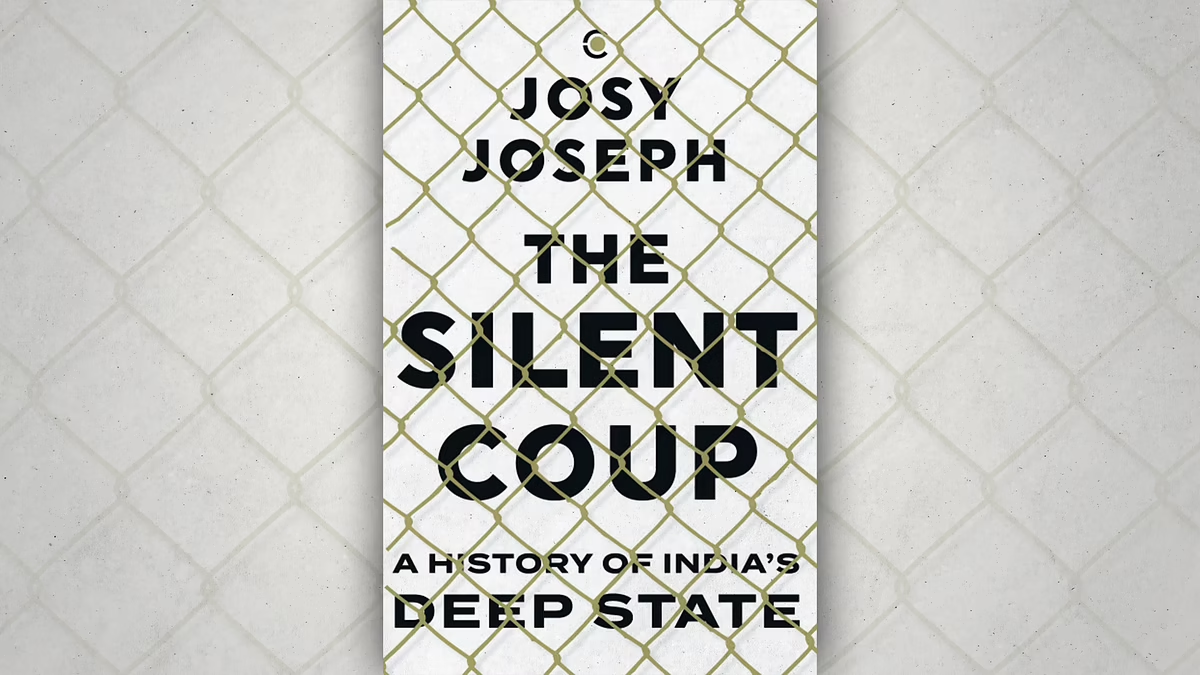Josy Joseph's 'Silent Coup' : How Inherent Biases of Non-Military Security Establishment Lead to Constitutional Subversion
Prakhar Raghuvanshi
4 Nov 2021 3:13 PM IST

This erosion is conspicuous when it uses legislative or executive mandate as its medium. This can be done in several ways, including enactment of tyrannic laws, interfering with the independence of the judiciary, bypassing the legislature and so on. However, this erosion is hardly noticeable when the deep state is at work.
Josy Joseph, in his latest book "The Silent Coup: A History of India's Deep State", reveals this democratic erosion via the non-military security establishment. Working either on the whims of the ruling elite or inherent biases, this process results in a catastrophic outcome. These outcomes are now evident in India's case, which has been downgraded to 'partially free democracy' status or 'electoral autocracy' status in recent reports of Freedom House and V-Dem Institute, respectively.
Joseph argues that the Indian politicians were smart enough to ensure civilian control of the military by staffing the Ministry of Defence with civil servants. Rather than being a tool to subvert democracy, Joseph argues, the Indian military 'became a professional outfit that got down to the task of building democracy.' Consequently, the ruling elite relies on other legitimate arms of the state to destabilise democracy.
The inherent bias
In the process, the non-military security establishment, which enjoys a certain amount of respect in the eyes of an average citizen, is put to use. This establishment draws a major chunk of its power from 'labyrinthine laws passed in a knee-jerk reaction.' In the first part of the book, the author accounts for a school teacher named Wahid who was hauled up by the police, Anti-Terror Squad or other security establishments after any unfortunate accident anywhere, including the World Trade Center attack.
Wahid had to go through the entire prosecution when he was booked under the 7/11 urban train blasts of 2005. Although Wahid was acquitted in the case, the wheels of justice turn so slowly that the process is the punishment in itself. The accused, mostly Muslims, are also subjected to manipulated and fabricated narco-analysis tests. In 2009, Dr Malini at the Forensic Science Laboratory was sacked for repeatedly misleading the courts, and even her qualification was questionable. However, by this time, she had performed over 1000 narco tests, 1500 brain-mapping tests and 3000 lie-detection tests. The derailment of justice is beyond imagination.
This establishment acts in a secretive manner with no accountability or audits whatsoever and acts as well as amplifies its own inherent bias. Joseph comes across as extremely courageous while narrating the stories of inherent bias and calls for parliamentary oversight over these agencies, as is prevalent in some democracies.
Colonial Hangover of Security Establishment
Joseph criticised that almost the entire establishment works on colonial laws, particularly the Police Act of 1861. Among other issues, the 1861 act envisaged police not as agents of the people but instead as an arm of the British Empire to suppress dissent, revolt or any sort of protest. Today, this has translated into the state police's loyalty to the chief minister and executive in general. The call to set up a State Security Commission to avoid political influence, suggested by the National Police Commission in the Model Police Act, was ignored. The Supreme Court also gave several directions for police reforms like fixed tenure, transparent merit-based appointment, separation of investigation and law and order functions and so on, in Prakash Singh v Union of India.
However, none of these has been implemented in any state. Yashovardhan Azad, a retired Indian Police Service officer, cites lack of political will and the fear to lose power over state police as primary reasons for the delay in police reforms.
Some Truths
In the second part of the book, Joseph analyses the anti-terror actions of the Indian state through his own experience as a journalist. Concerning Kashmir, Joseph boldly blames both the Congress and the Bharatiya Janata Party for the instability. Congress has used the region for political gains. For instance, in 1982, it prompted Farooq Abdullah's brother to break away from the party and provided him support to form the government. Whereas the BJP used the Hindu-Muslim binary and never questioned the excesses of the security establishment.
In a hostile land, the security establishment has often used the number of kills to grade their men on the ground, with no checks. There has been a serious disregard of accountability, and the author believes it is for this reason that the establishment must share the blame. The author has further countered the mainstream narrative of relating terrorism with a single religion by discussing exhaustively citing the actions of Liberation Tigers of Tamil Eelam (LTTE). Joseph vociferously argues that the tendency of relying on religious belief in order to justify violence is not unique to a community.
It is argued that violence, in essence, is secular. However, at this stage, Joseph fails to distinguish between violence as a result of communal hatred. Nonetheless, his argument against the security agencies' reliance on its own bias is correct even in the face of communal violence. The book dissects several incidents, from Judge Loya's death to the arrest of Sudha Bharadwaj and Bhima Koregaon incident. It not only presents a clearer picture of incidents as they were but critically analyses the role of the security agencies, police and the mighty state machinery.
It starts with an unimaginable assertion, and Joseph convinces the reader about its reality. It leaves us, ordinary citizens, with enough reasons to demand an audit of security agencies via parliamentary oversight.


